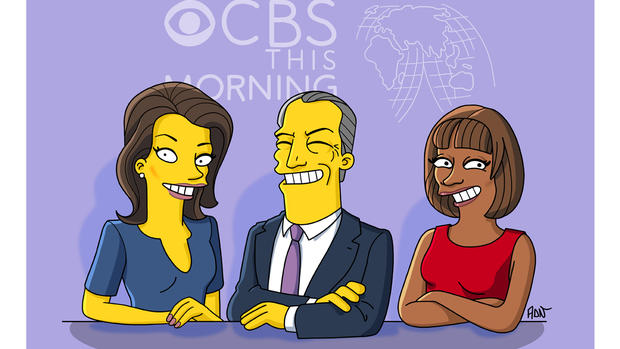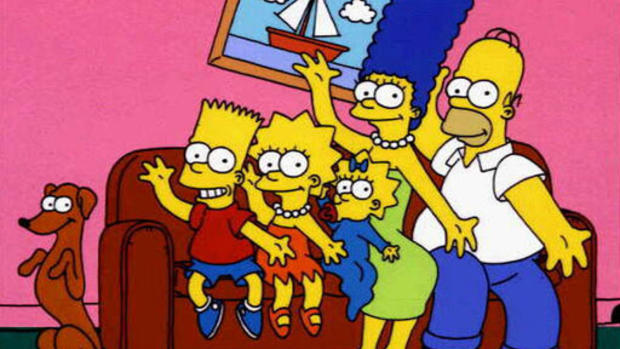Six-hundred episodes later, "The Simpsons" is still breaking ground
The classic Western series “Gunsmoke” rode off into the sunset after 20 seasons and more than 600 episodes. The record still stands -- no other scripted show in U.S. television history has made it to that mark. But that changes Sunday night.
“The Simpsons” has been a fixture on Sunday nights since 1989. And Sunday night, viewers will make that familiar trip to Springfield for the 600th time, reports CBS News’ Dana Jacobson.
For 28 seasons, millions have followed the animated exploits of that mustard-skinned family of five.
Creator Matt Groening named the dysfunctional clan after members of his own family, including his mother, Marge, and father, Homer.
The family is surrounded by a vibrant array of more than 150 recurring characters, including an incompetent police chief, a miserable television clown and a sinister billionaire, who happens to be Homer’s boss.
The Simpsons made their television debut as a series of animated shorts that aired during “The Tracey Ullman Show” on the fledgling Fox television network back in 1987.
The cartoons were so popular that by 1989 Fox made the decision to part with network TV conventions and put an animated sitcom in prime-time. The show became an instant hit.
Executive producer Al Jean has been with the Simpsons since their prime-time debut.
“They were called the dysfunctional family, there were some criticisms at the beginning, but who comes from a functional family, really? I mean who comes from a family where everything is perfect and it’s like “Leave It to Beaver”? This doesn’t exist,” Jean said.
“The Simpsons” generated some controversy in those early days. A Simpsons T-shirt with the quote, “I’m Bart Simpson. Who the hell are you?” was expelled from school. The show even drew the ire of President George H. W. Bush in 1992, when he vowed to help American families become “a lot more like the Waltons and a lot less like the Simpsons.”
The show’s creators responded to that charge with Bart Simpson saying on the show, “Hey, we’re just like the Waltons. We’re praying for an end to the depression, too!”
It was clear from the start that the Simpsons weren’t your ordinary cartoon.
Early reviews described the show as “wicked,” “skewed,” “weird” and “wonderful.”
“It was just a show that kids would like because of the form but that adults would like because of the content, and since then, everybody -- the writers and animators -- everybody had just worked so hard on preserving the quality of the show. I think that’s one reason we’re still around,” Jean said.
With a knack for incisive pop cultural references, celebrity guest appearances and a willingness to tackle social issues, it wasn’t long before “The Simpsons” went from subversive phenomenon to part of the cultural fabric.
“’The Simpsons’ hasn’t even really had an impact on American culture so much as it is American culture,” said Matt Singer, editor-in-chief of screencrush.com. “Six-hundred episodes of a TV show but also a movie, books, music, toys, video games, clothing -- every aspect of popular culture has been contained within ‘The Simpsons,’ and ‘The Simpsons’ has commented on every aspect of popular culture.”
The show’s producers are always looking to keep things fresh, and they’ve done shows set in the real world, including one where Homer was voiced live. There has even been a Lego episode.
On Sunday night, they’ll continue to break new ground. Part one of the 600th episode will be presented in virtual reality -- the first television show to feature that technology.

